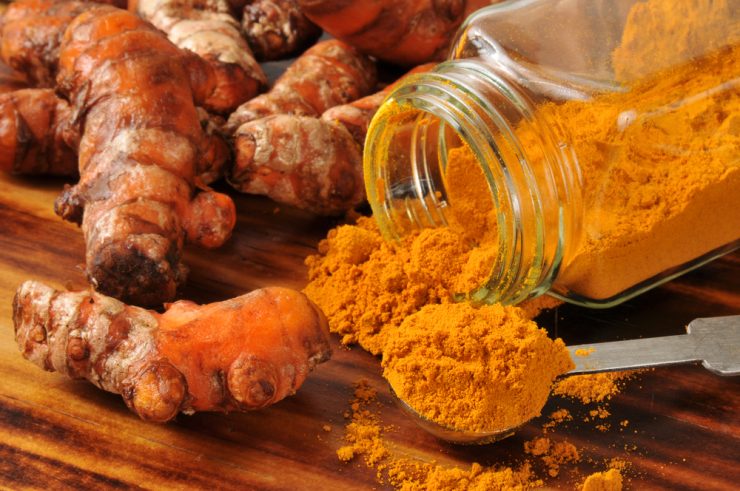You may think of Turmeric primarily as a curry ingredient, but it has a vast array of health benefits, especially when it comes to digestive health and overindulgence.
Editor Jane Garton tells us all about the top herb turmeric.
If you’re keen on Indian food, you probably think of turmeric as a spice used in curries – there’s probably a pot sitting in your spice rack right now! It is in fact one of the world’s oldest herbal remedies. With records dating back to 600 BC, turmeric has many uses besides being an important ingredient in Asian and Indian cooking. The healing secret is a component called curcumin, which is the main active phytochemical found in the turmeric root.
So what are it’s benefits?
IT HELPS PROTECT THE LIVER
Being rich in curcumin, ground turmeric helps protect the liver, lower cholesterol levels, and is also an antibiotic. Combine turmeric with artichoke and you have double the benefits. It increases bile flow, thus preventing the fermentation of undigested fats in the intestine, which can lead to flatulence, bloating and cramps.
IT’S GOOD FOR HANGOVERS
According to ayurvedic tradition, turmeric can soothe the stomach and balance an upset digestion. Just take a small spoonful of turmeric and stir it in a cup of yogurt right after lunch. In Japan they have a whole row of turmeric preparations for curing hangovers. And in a recent animal study, extracts of turmeric root reduced secretion of acid from the stomach and protected against injuries to the stomach associated with alcohol (such as inflammation along the stomach or intestinal walls and ulcers).
IT SOOTHES IBS
Being a potent anti-inflammatory, turmeric is also recommended to help maintain a healthy bowel and may be beneficial for sufferers of irritable bowel syndrome (IBS). Research carried out at the University of Reading has shown that a daily dose of a standardised turmeric extract supplement, can help relieve the symptoms of irritable bowel syndrome, with 66% of the study group reporting some improvement in their overall symptoms.
DIGESTION ADVICE
Here are some top tips of how to give your digestive system a helping hand before, during and after a period of overindulgence:
- Eat before you drink – this helps mop up the alcohol before it enters the blood stream
- Drink plenty of water to stop yourself dehydrating and try to alternate between an alcoholic drink and a glass of water
- Sleep – make sure you get enough
- Pace yourself – enjoy your drinks rather than ‘downing’ them
- Have healthy fruit juice for breakfast
- Avoid coffee and the ‘hair of the dog’ the morning after – both may be useful in the short term, but hangover symptoms are likely to return with a vengeance once their effects have worn off























